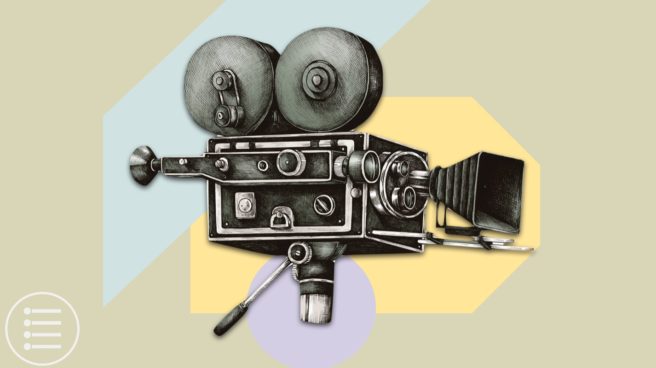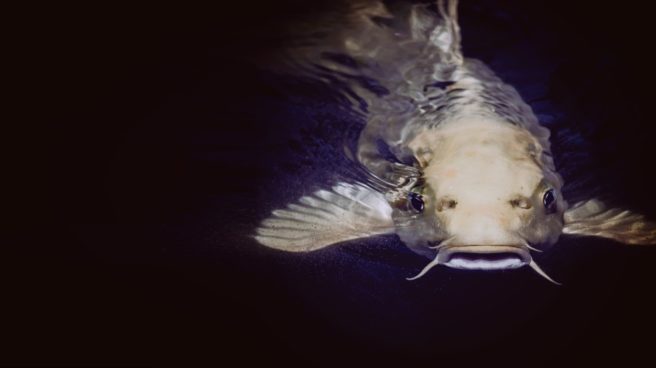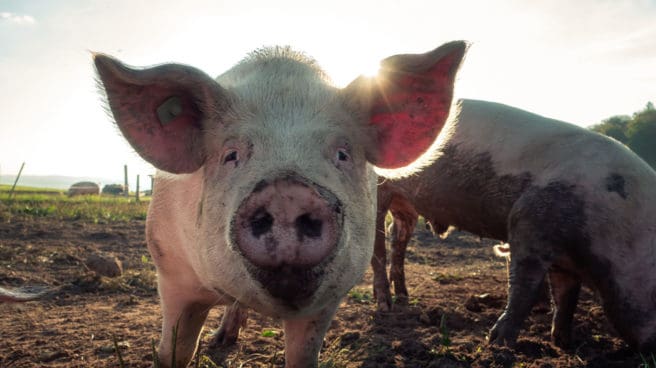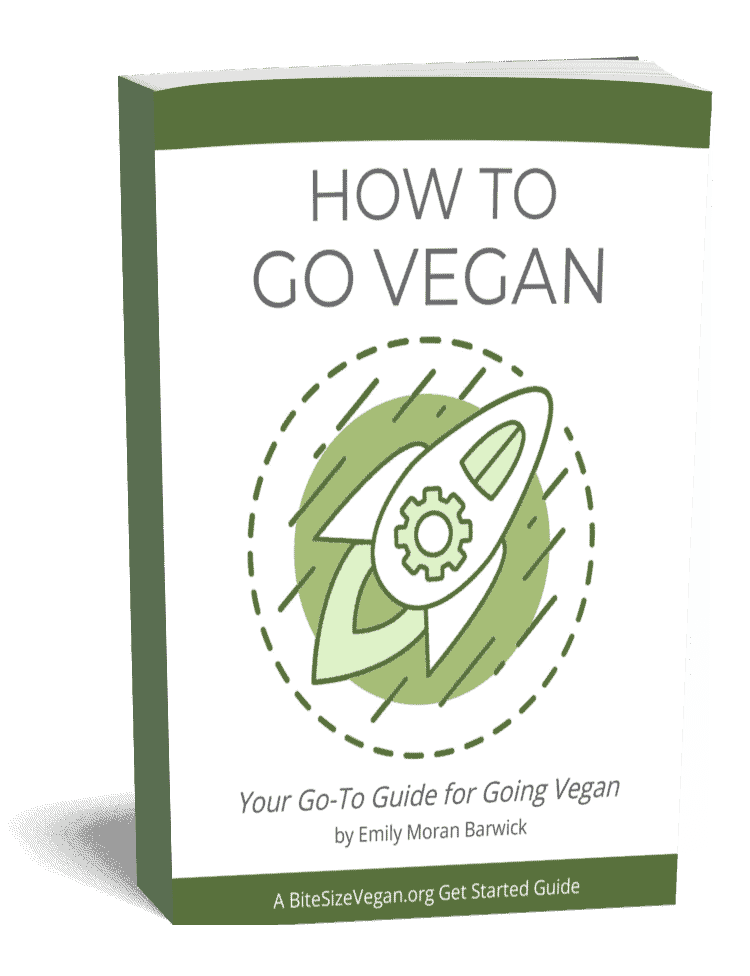The numbers in this video are shocking. We are great at counting calories, measuring profits, quantifying just about anything. But when it comes to knowing our impact on other beings, we fall short. How many animals do we eat every year?
You hear a lot of numbers thrown around in the vegan and animal rights communities. The severity of cruelty in this world is astounding and it boggles the mind to try and grasp it in its entirety. Today I want to tell you what happened when I attempted, in some sense, to quantify the suffering we humans inflict.
A Note on My Process for This Article
This is going to be a bit of a different video and post than I usually put out. I was planning on releasing a statistical masterpiece today on exactly how many animals we kill globally every year, pulling data from a multitude of sources and attempting to crunch the numbers for some ultimate view of our impact on other species. But about an hour before I needed to be filming, I found that the numbers I had been using as my base figures weren’t correct.
While this post will still contain statistical data, it will not be as overly comprehensive as I had initially hoped and will contain a whole lot more passion and emotion as I’m going to share the experience of searching out these figures. All the data I mention will be linked to specific sources throughout the post along with some additional information at the bottom.
Why Counting Matters
Now why do this at all? What can counting these animals possibly accomplish? For that, I’ll defer to Harish Sethu, the incredible mind behind the blog Counting Animals who states:
Well-sourced quantitative information has a role to play in building convincing arguments, producing dependable literature, choosing effective forms of activism and promoting a credible image of the movement in the public sphere.1
— Harish Sethu, Counting Animals
It’s important to realize the true extent of our impact on animals and be able to share reliable data when educating. Believe it or not, statistics can change minds. And I agree with Harish that using false or unsubstantiated data, no matter how emotionally compelling, does a disservice to the vegan and animal rights cause. Things are horrific enough. We don’t have to exaggerate or falsify data. And the utter lack of it can be compelling in and of itself, which is what this video ended up being about in the end.
I spent over 48 solid hours combing the United Nations Food and Agriculture Organization’s statistical site2 before looking elsewhere for all of the beings for whom they do not account. Those excluded from the FAO’s count include:
- all marine life—whether by direct slaughter, as bycatch, or wild fish who are killed to feed the farmed fish we actually eat
- all of the beings who literally suffer to death before slaughter—which, you maybe surprised to learn, severely dwarfs the number of those killed for in animal and by combined by at least 113.5 million—a number derived from just the number of chickens who suffer to death (a total of 139,017,000 in the United States alone)
- the beings in the dairy and egg industries, whose bodies give out and are made into pet food
- the male chicks who are ground up alive or gassed
- the mothers of the chickens we eat
- the veal calves of the dairy industry, taken from their mothers at birth and slaughtered.
- the beings killed for their skins and fur via anal and genital electrocution
- the beings killed in ritualistic slaughter or sacrifice, like the estimated 20,000 goats slaughtered every year at the Dhading temple in Nepal,3 or the estimated 250,000 animals sacrificed at the Nepalese Gadhami festival in 20094
- the beings who die in laboratories, animal shelters, in rodeos, circuses, zoos, racing, marine parks, blood sports, and other forms of animal entertainment, or killed in car accidents, or from pollution or displacement or hunting or abandonment
I dug through the makings of the kill counter5 most of us are familiar with, finding it quickly to be a dead end back to the United Nations FAO. So I figured they must have been using the only statistics on the FAO database that displayed head counts—meaning actual numbers of animals—and used this as my base.6
However, I found much later from Harish that the head count figures are just the number of animals at a given moment. It’s an “inventory” number. To find the number slaughtered, you have to look into a category called “livestock primary”7 in which all data is given by weight.
So, to find the actual number of individuals killed, you’d have to know the average weight of meat that could be sourced from each animal. Of course, there is the additional challenge of the average weight varying widely from country to country. While the USDA (United States Department of Agriculture) provides statistics for individual animals,8 we’re left guessing at a global number.
I then looked into all of the exceptions not covered by the FAO—which I listed earlier—all with the end goal of producing a number we’ve never seen before.
But I don’t have that for you. And no one does. Even the kill counter is a guess at best, derived from estimates of estimates of estimates.
We don’t know how many animals we kill every year. And even more so we don’t know how many really die from suffering, from abject misery or even heartbreak. We don’t know the harm we cause.
I did my best to find what data I could for all of these beings in the time I had, but unfortunately, we as a society do not value their lives enough to even note their passing. They are worth less than a mark on a paper. But you’re damn sure that their profit margin was carefully and painstakingly charted.
To help put this complete disregard in perspective, let’s look to the cost of war on our world. We mourn the lives of our soldier and the innocent victims of war. We memorialize them, erect monuments, have remembrance days. And I’m not here to criticize that or tell you a chicken is more important than your family member who died in the war. I’m here to speak for those without mourning family, those with no memorials, no remembrance days, not even magnetic ribbons for your minivan. I’m here to remember them.
What’s in a Trillion?
Before we look at the numbers, let’s take a moment to wrap our heads around the concept of what these figures mean.9 I’ll be using the United States understandings of these terms, which is increasingly being used worldwide.10 It’s easy to think that one million is more than one thousand and one billion is more than one million and so on. But exactly how much more are these numbers? Our conceptual intuition tends to wane when we get this large, as one has to factor in the exponential nature to fully understand and grasp the enormity inherent in these figures.
A method commonly employed to make such massive figures meaningful is to state them in terms of the passage of time:11
- A million seconds is about 12 days
So a billion seconds would be what? 24 days, maybe? Or 48? In reality:
- A billion seconds is 31.7 years
So then, what is a trillion seconds? Have a guess?
- A trillion seconds is 31,709.8 years
To put it in relational terms:
- One million is a thousand thousands
- One billion is a thousand millions
- One trillion is a thousand billions (or a million millions).
Now that we have a more concrete conception of what these terms mean, let’s dive into the numbers.
Putting the Numbers in Perspective
It’s estimated that 108 million people were killed in wars throughout the 20th century, with estimates for all of human history coming around 150 million to 1 billion.12 In 2013, the United Stated slaughtered 8.6 billion chickens.13 Meaning, even if using the higher estimation of human deaths due to war:
Worldwide, it’s estimated that 50 billion chicken are slaughtered every year.14
Approximately 11 million people died in Hitler’s holocaust. In 2013, the United States alone slaughtered over 112 million pigs.
Of the victims of the holocaust 1.1 million were children. The children of the animal products industry are not tracked, but we can compare the 1.1million children with the estimated 1 million veal calves slaughtered year after year after year.
Or all of the uncounted, but given egg production statistics at least 1 billion male chicks of the egg industry who are ground up or gassed alive.
Or the uncounted baby pigs who slip through the grating of the gestation crate or are unintentionally crushed by their mothers for lack of space.
Or the foals of nursing mares of the horse racing industry who are taken from their mothers and sent to slaughter or clubbed so that pedigreed foals can have their milk.
Am I saying the death of 1.1 million human children wasn’t tragic? Again, please listen–I’m speaking for those who don’t get remembered.
As a whole, the human death toll encompassing combat casualties15 of World War II and second Sino-Japanese war, as well as worldwide Holocaust and concentration camps deaths, is estimated to be 40 million.16 In the United States alone, the number of chickens who suffer to death every year before even making it to slaughter is over 139 million (139,017,000).17
And this isn’t even reaching those animals with the highest death tolls, who tend to be the least valued—even by vegans.
The Highest Death Toll
We kill roughly 1 trillion to 2.8 trillion fish every year—whether for direct consumption from aquafarms, or those caught in the wild to feed the farmed fish we eat.18 Take a moment to re-read the profound difference between billion and trillion.
Outside of the staggering 2.8 trillion fish, what about the 703 billion (703,014,400,000) to over 2 trillion (2,391,686,944,000) silkworms boiled or baked or lanced every year so we can dress up?19
How about the 1 to 6.5 trillion bees enslaved on farms at any given moment—based on the number of beehives listed by the FAO20 and the average bees per hive—many21 of whom are killed off every fall for economic reasons?
When it comes to the number of animals killed every year, you often hear totals like 150 billion rattled off. To be completely transparent, I’ve even used that figure several of my videos, having not looked into the kill counter and other statistics to the extent I have now. Yet, if we taking even just the number for fish, we’re already at upwards of 2.8 trillion lives!
The estimated number of humans to have ever lived on earth in the entirety of our species’ existence comes to 107.6 billion.22
Even if we were to use much-repeated estimate of 150 billion animals killed in a single year, we’d still exceed the total humans to have ever lived by 42.4 billion.
Now you tell me: who are the real victims in this world?
Coming Up Short: We Don’t Even Care to Count Them
These numbers become more and more unfathomable and there is no total because we simply don’t care enough to know; and really, in the end, don’t want to know.
When I realized—in the eleventh hour of attempting to produce this video—that my statistics had been wrong the entire time, and that there literally is no sure way to even estimate the deaths we cause as a species, I had a bit of a mini-breakdown.
Not from the stress of my production schedule or the demands of my perfectionism, but from an overwhelming sense of loss–not the loss of lives itself, but the complete and utter disregard for these losses.
They are so insignificant to us that we literally cannot even acknowledge them if we tried. And even when we try, we come up short, forget those whose prolonged suffering would most gladly be met with death, and in the end, reduce them even further into abstraction.
And they deserve more from us.
If we’re going to breed them into monstrosities that grow far beyond their natural size, keep them in cramped, horrific conditions rife with disease which literally drives them insane, take their children from them to an often live slaughtering, wear their bodies out to the points of severely premature death, electrocute them anally, pour caustic chemicals into their eyes and dissect them while fully conscious, allow them to die slowly and painfully through suffocation, beat them to perform for us, rape them to make milk for us, skin them to make clothes for us, and kill them to make food for us, the very least we can do is acknowledge what we’ve done. But because of our utter disregard and the shear number of animals we inflict cruelty upon, we can’t even given them that.
We owe the animals more than Meatless Mondays. We owe them more than “I’m trying but cheese is so hard!” We owe them more than “I only buy free-range eggs.” We owe them more than “At least I’m vegetarian.”
For non-vegans who simply don’t know—I understand—most of us started there. But once you know, it’s on you to step up and go vegan. As fast as you possibly can.
Because these numbers are only going up every single year. And the animals can’t wait for it to be convenient or comfortable. The scope of their slaughtering is beyond anything we can possibly comprehend because it surpasses any kind of death toll we’ve ever experienced, and their suffering is utterly unquantifiable.
The best way for us to get accurate statistics is not to have better tracking—it’s to eliminate the need to track. And that only happens by going vegan. After everything we’ve done and continue to do to animals, don’t we at the very least owe them that?
A quote Harish so appropriately has displayed on his blog states:
Not everything that can be counted counts, and not everything that counts can be counted.tweet this
William Bruce Cameron
And these lives count.
In Closing…
Though it ended up being less purely educational and statistics-based than I intended, the time it took to produce this video and post taking into account the research for what initially I set out to cover comes to about 64 hours.
If you’d like to help support Bite Size Vegan so I can keep putting in the long hours in an attempt to bring even an iota of recognition to the animals of this world and shine a light on the horrors we perpetrate against them, even if it’s not always perfect and nicely packaged, please check out the support page.
If this video post reached you, please–more than even supporting my work–share it around to attempt in the smallest of ways to account for our collective negation of all we do.
In closing, I want to say something to the animals:
I’m sorry I couldn’t better encompass what you go through. I’m sorry for all that my species has done and continues to do to you. I’m sorry I’m not able to stop it more effectively or quickly. I do see you. I am sorry. I am trying. And I know that it will never be enough.
— Emily Moran Barwick







One of your best videos ever. Your passion and pain is really obvious. I’m impressed with your effort and your commitment once again. But you’re right: It will never be enough.
I’m so damn angry at every person who contributes to all the suffering. I’m so damn angry at people who think it’s okay what they are doing. Who try to justify their consumption of animal products with excuses like “It’s organic”, “It’s free-range”, “The animals had a happy life”.
Right now I even hate the vegans who say “I’m vegan but everyone else can eat what they want”.
No, they can not, goddammit, it’s not a choice, it’s injustice.
God, my heart breaks for all the fish, the chicken, the cows, the pigs, the turkeys, the bees and everyone else. Why does the money paid for their bodies and their “products” count more than their lives?
All the animals who have to suffer and die afraid and alone – with no hope for help. And there’s nothing I can do to safe them. I will educate people every day of my life and it’s still not enough.
Thanks for your incredible work, Emily. I love you and your passion.
Vegan love from Germany.
Sophia
thank you so much Sofia! I so appreciate your kind words. I get very angry and hopeless at times myself. Making this video was one of them. I’m right there with you and so appreciate your passion.
thank so much and much love!
Thank you for this video Emily. Those numbers are horrifying, it’s hard to swallow. We live in a cruel world, I realized that after going vegan. I feel sorry I’m part of the human race, that we do this to those who has done nothing to us,
thank you so much Sofia. it really is difficult and i still don’t think we are even capable of wrapping our heads around them.
I’m with you, don’t get me wrong, but any number is going to be an estimate. We can’t even provide an absolute number for how many *people* die from suffering every year.
this is very true
Emily! My heart hurts. My heart always hurts for these innocent beings. Thank you for your passion in this video. The end really made me cry. I must show this to my vegetarian club at the high school I work at. I think my kids needs to see it.
you’re so welcome- and i feel it too i cried a lot making this and experienced a whole range of emotions. and please do play it for them!
It’s an outrage beyond question, it’s the epic crime of our times… I’m weeping… and I’m angry… I’m fucking angry…
i’m right there with you
Like always, ENORMOUS THANKS EMILY! On behalf of them.
I want to add some flavor to your data. Just a simple fact. That all the humans that have died in wars are deaths perpetuated by humans also. How many humans are killed by animals in a year? a thousand at the most? I think the only way people are killed massively by animals is because they eat them…
I appreciate so much your work Emily! ETERNAL THANK YOU!
Kisses and hugs from Argentina!
thank you so much Matías! And that’s a great point, thank you :) Much love!
I’ve been vegan for two months and one day now, I had my first slip this week when I was really hungry and couldn’t find anything to eat while on the road. I tried to justify it to myself, but this video reminds me that the small amount that I would have suffered from being hungry is insignificant compared to the suffering of the animals who went into my snack. Thanks for putting things into perspective, and reminding me to be tougher with myself!! It’s early days for me and your website is a constant source of inspiration and support, the more I know about this stuff the less I feel tempted by the foods I used to eat and the more confident I become in talking to people about my life choices. Thank you.
Beth, thank you so much for your comment and your reflection. So honored to be of assistance in your journey. Oh and did you see my video on gas station vegan food? Maybe that could be handy?
Hi! European countries are mandatory to monitor the number of slaughtered animals, the number is given both in carcass weight and number of heads (unit list menu). By default only the “Meat of bovine animal” is displayed but by clicking on the + icon and selecting all the checkboxes then “update”, all animals figures are available for Europe : https://appsso.eurostat.ec.europa.eu/nui/show.do?dataset=apro_mt_pann&lang=en .
Speaking only for France, it took me hours to find the most detailed data on the number of slaughtered animals: it is publicly available on a website but quite hard to found. Now that I put the figures on the french Wikipedia article for meat, they are much easier to find \o/. I am currently working on the english one.
Thank you for you activity on the veganism topic! Kisses and hugs from France!
wow thank you so much for this Stef! i’ve been finding bits and pieces since putting this out and will eventually do an updated video with what i find. thank you so much for making those updates and scrounging around for this!
You know what’s more horrifying (for me)? it’s the fact that every single person that I shared this information with just laughed it off… :/
Thank you for taking the time to make this desperately needed but heartbreaking video, Emily. I’ve been vegan for almost 10 years and still learned loads from watching it. Your work is priceless and you’ve re-inspired me and rekindled my passion to spread this unimaginably important message as far and as widely as I can.
You’ve done more good already than most people ever will in their entire lives and I’m saying that having only watched a few of your videos at this point.
I’m the guy in Ireland who sent you a message yesterday asking if you could direct me to this information – then I found this video! I also found your Dublin Vegfest 2016 talk and watched it all. I was in tears during it and the same during this one above.
Thank you so much again. Please stay strong and keep that fire in your heart. Your spirit and courage and determination are a gift to this world and all its inhabitants.
I am stumbling around for words to express my deep appreciation for your comment. Your incredibly kind words of encouragement warms my soul. I am so very grateful and honored that I had any part in reaching your heart and re-inspiring you to advocate for the astronomical number of animals that humans decimate every minute of every day.
I am glad you found the video and I am very sorry for any delay on my part in getting to your messages. The struggle of keeping up with emails and communication across various platforms is really kicking me in the pants as of late.
Rest assured that I will never stop fighting for the animals and never stop exposing the cognitive dissonance that permeates this whole world. Thank you again for sharing your experience and giving me a boost in spirits. Much love.
You’re so welcome! Just remember you are reaching huge numbers of people all over the world and let that knowing be a source of comfort and inspiration to you.
What you’re doing is truly beautiful and a wonderful gift to the world, people and especially all non-human life on earth.
Yep, I’m so glad I found it too. It was a tailor made answer to my questions and the research I had started doing to find these numbers. It is literally beyond comprehension. I will share your videos and tell everyone I know about them and your site and social media.
No apology necessary for the very short delay – I get it, it’s very hard to keep up these days and for you even more difficult for obvious reasons.
I’m glad that you said it, but I knew before you said it that you’d never give up. It’s obvious from your videos and all your work that you care far too much to do that :-) And that wave of compassion you’ve created will continue to spread through the world..
Stay strong,
Stephen
Wow, Stephen… I don’t even have the words! This meant to much to me. Thank you so very, very much. I will keep this message around for when I feel like I’m getting nowhere.
Much love and all my thanks!
You’re very welcome, Emily!
Likewise!
:-)
Not sure I really wished I could do the math on the numbers…is that millions nor billions? What’s really sick and sickening is when one splices the whole Holocaust of “animals” to Arby’s triple thick and sugar cake sandwiches. And kids eat all this commercial fast food poison. I was reading even 18 year olds or are having heart attacks, and mainly due to the American diet. Let’s not let this become the one world eating culture. Please. I don’t even want to eat eggs anymore. I make my food fresh at home because I like to know what I’m eating and what’s in my food and then I can eat with a clearer conscience. I wish we could put this major meat industry out of business. Everywhere.
Thanks Emily, amuch… from here in Oz.
For years too I have been searching for such numbers.
Yes, it is far from easy.
It is of some tiny comfort to know that I am not alone in this horrific pursuit.
.
There is a claim somewhere ( ) that said:
‘if humans were to be killed at the same rate we kill (other) animals, we’d be extinct in 17 days’.
While this is impressive and I am busting to make it and wear it on a tee shirt….
i wonder how credible it is.. any thoughts?
Peppa, Thank you so much for your comment and I can totally relate to the maddening affects of pursuing this impossible task.
I do think I’ve come across that statement, but haven’t dug deep enough to find the primary source—if there even is one—so I cannot currently say whether it is credible or just a nice sound bite.
What I do when I find such things, is see if any reference is given, even to another “cut and paste” article that ends up also not citing… but I just keep searching and digging until I can find some source. This can take hours, days, or months depending.
I’d love to look into this, and will certainly put it on my research list—but I cannot currently say when I’d be able to get to it as my plate is currently overfull (as usual!). If you happen to find out more in the meantime, do please let me know! And I’ll do the same!
Dear amazing wonderful Emily this is one of the videos I share the most. Just a note for spanish people. Billion es mil millones and trillion es un billón. Ther´s an error in the subtitles in youtube.
Hello Emily,
Thank you for the great video. I am from India. As far as I know, this is the only place which is culturally vegetarian going back to over two thousand years. Moreover, to quantity this, as per the data has been assimilated,which I know is very incomplete after reading your work, the meat consumption in India today is well less than 8 kg/person/year. This is in comparison to say Australia or the US, where the consumption is over 110 kg/person/year. Even Buddhist countries do not have the type of numbers that India has. We have built a culture based on ethics of not only how to treat other humans, but animals as well.
Unfortunately however, this is considered a weakness historicly speaking. Many parts of India has been colonized continuously for over a thousand years – first by Islamic invaders, and then by the British. As a result, even our cultural history has been rewritten for us, including the part about being historically vegetarian. In effect, the vegans/vegetarians in the world are just seen by the others as one more group to be trampled on and/or ignored, nothing else.
I think the work you are doing is fantastic, and don’t want to deflate you or anyone else in any way. I am just giving you an honest perspective that you or someone else reading this may not have thought of.
Thank you for sharing your experience, Sridhar. I actually lived and studied in and around Jaipur during college. I hope to return to India some day. While I’ve not done a fully dedicated piece on India by any means, I do touch on ancient Hindu texts and beliefs in my History of Veganism part one.
You are very spot-on with India’s identity being constantly hijacked and overwritten by colonization, time and again for so long. The impact of colonization upon so many parts of the world is heartbreaking, and something that resonates through the present day, regardless of any official end to occupation. Thank you again for sharing.
“Correction: Twice during the video, I say that over 139 billion chickens suffer to death in the United States, but display 139 million onscreen. The correct number is the displayed 139 million, and the comparative calculations I make in the video based off the correct figure. I simply misspoke.”
I checked with the USDA official numbers on this recently and its actually over 9 billion chickens (Federally inspected only, ), not including the estimated 300 million in Chick culling (murdering baby roosters on the day they are born in hatcheries, 7 billion total globally in Chick culling)
Hi there. Thank you for the comment. While you are correct that we kill billions of chickens a year, the figure I was referring to are chickens who suffer to death before even reaching slaughter. These beings are unaccounted for in the slaughter numbers all together. So I wasn’t referring to the number slaughtered, but those who die before that point from the extreme conditions. Apologies if that was not clear.